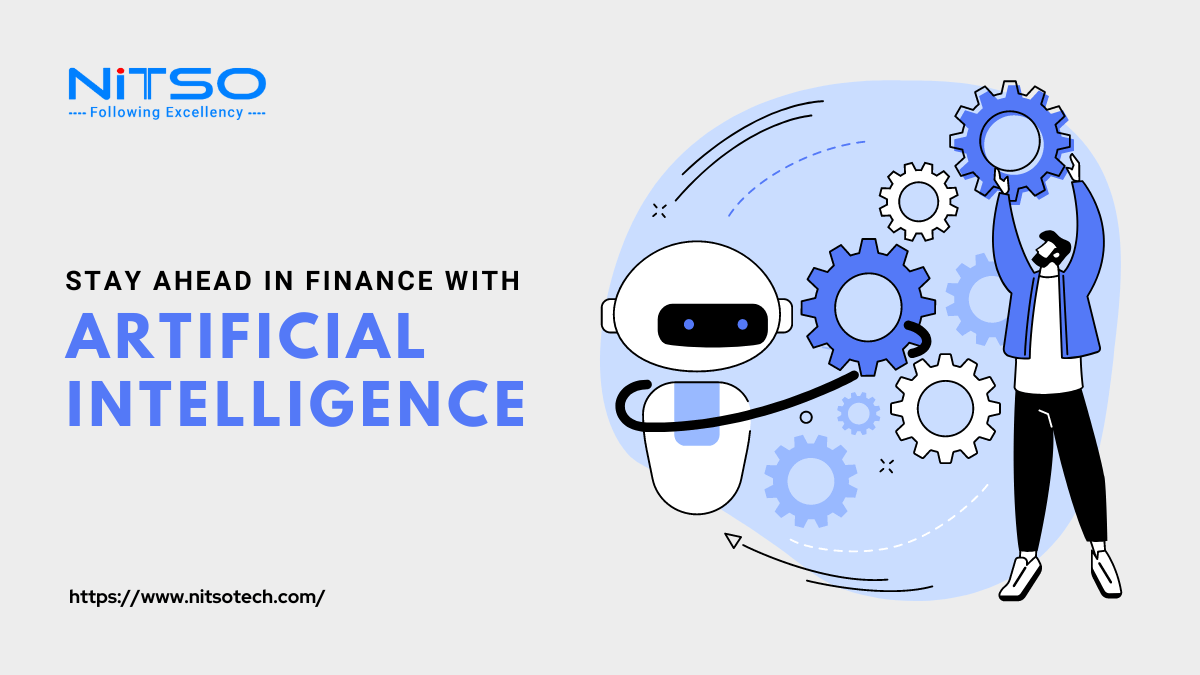The impact of artificial intelligence (AI) in the finance industry is rapidly reshaping the way finance teams operate. As AI technologies continue to advance, finance professionals must embrace these tools to stay ahead in an increasingly competitive landscape. This article explores the essential AI tools that can empower finance teams, enhance their efficiency, and drive better decision-making.
Table of Contents
Understanding AI in Finance
With progressions across various industries due to Artificial Intelligence (AI), it comes as no surprise that it has impacted the finance sector quite significantly. Automated trading systems and advanced fraud detection techniques are just some critical components that have transformed how financial institutions operate daily by incorporating AI technology processes efficiently. This article discusses how crucial these improvements are by delving into challenges while also considering their potential implications for shaping a new future for our ever-evolving economic landscape.
- AI-Powered Automation in Finance: AI has enabled the automation of numerous financial processes, significantly improving efficiency and accuracy. Tasks such as data entry, reconciliation, and report generation that were once time-consuming and error-prone can now be performed swiftly and accurately with AI algorithms. Robotic Process Automation (RPA) and machine learning algorithms can handle repetitive tasks, freeing up human employees to focus on more strategic and complex activities.
- Intelligent Trading Systems: AI has transformed the trading landscape by introducing intelligent trading systems that leverage sophisticated algorithms to analyze vast amounts of data and make informed investment decisions. Machine learning models can detect patterns and trends in market data, identify trading opportunities, and execute trades with minimal human intervention. This technology enables faster and more precise trading, leading to improved investment strategies and potentially higher returns.
- Fraud Detection and Risk Assessment: Financial institutions face the constant threat of fraudulent activities. AI-powered systems can analyze large datasets, identify suspicious patterns, and detect anomalies that may indicate fraudulent behavior. Machine learning algorithms continuously learn from new data, allowing them to adapt and evolve to emerging fraud patterns. Additionally, AI models can assess creditworthiness and perform risk analysis, aiding in loan approvals and identifying potential default risks.
- Personalized Customer Experiences: AI has transformed the way financial institutions interact with their customers. By leveraging natural language processing (NLP) and machine learning, chatbots and virtual assistants can provide personalized and timely assistance to customers, addressing their queries, recommending suitable products, and even providing financial planning advice. These AI-driven interfaces enhance customer satisfaction and streamline the customer service experience.
- Enhanced Risk Management: The financial industry heavily relies on risk management to ensure the stability and security of operations. By analyzing data sourced from many different areas, it can help identify problems more easily than humans alone ever could. Predicting everything from market trends to customer behaviour with precision thanks to machine learning models. With real-time insights available at every stage along the way via this technology, decision-making becomes much easier for financial organizations.
- Regulatory Compliance: Compliance with regulatory requirements is a critical aspect of the financial industry. AI can streamline and automate compliance processes by analyzing large volumes of data and identifying potential non-compliance instances. Machine learning algorithms can detect patterns of non-compliance and flag suspicious activities, reducing the burden on compliance teams and enhancing overall regulatory adherence.
What are the Advantages of AI in Finance Teams?
Finance teams take on a critical role in managing financial processes within an organization. To optimize their performance with greater precision they have incorporated artificial intelligence (AI) technologies into their workflows leading to streamlined operations with increased efficiency levels alongside enhanced decision making capabilities. So, let’s investigate the advantages that come with integrating AI into finance team activities:
1. Enhancing Efficiency and Accuracy in Financial Processes
AI could make financial processes way better. Manual methods can take a long time and are prone to mistakes because people make them. By using AI tech like machine learning algorithms and natural language processing these processes can be automated and made more efficient. By leveraging AI, finance teams can:
- Automate data entry and extraction: AI-powered software can extract relevant information from various sources, such as invoices, receipts, and financial statements, and automatically populate data into financial systems. This eliminates manual data entry, reduces human error, and accelerates the overall process.
- Streamline reconciliation and auditing: AI algorithms can quickly compare and reconcile vast amounts of financial data, ensuring accuracy and minimizing discrepancies. Furthermore, AI can assist in identifying anomalies or irregularities in financial transactions, enabling timely detection of fraud or errors.
- Accelerate financial reporting: AI-powered tools can generate comprehensive financial reports by analyzing large datasets in real-time. This expedites the reporting process, improves data accuracy, and enables finance teams to make informed decisions faster.
2. Automating Repetitive Tasks for Time-Saving Benefits
Finance teams often spend a significant amount of time on repetitive and mundane tasks that can be automated through AI. By leveraging AI technologies, finance professionals can redirect their efforts towards strategic initiatives and value-added activities. Here are some areas where AI can automate repetitive tasks:
- Invoice processing: Invoicing just got easier thanks to modern AI technology that allows for efficient and accurate processing through automated systems. By scanning invoices automatically and matching them with purchase orders without human intervention these innovative solutions save considerable amounts of time previously spent on manual handling while significantly reducing errors that may occur during such processes.
- Expense management: AI can simplify expense management by automatically categorizing expenses, flagging potential policy violations, and providing real-time insights into spending patterns. This allows finance teams to manage expenses more efficiently and proactively identify cost-saving opportunities.
- Cash flow forecasting: AI algorithms can analyze historical financial data, market trends, and other relevant factors to generate accurate cash flow forecasts. This helps finance teams optimize cash management, anticipate potential liquidity issues, and make informed financial decisions.
3. Enabling Data-Driven Decision-Making and Risk Analysis
One of the significant advantages of AI in finance teams is its ability to harness the power of data and provide actionable insights. By processing vast amounts of financial data and utilizing advanced analytical techniques, AI enables finance professionals to:
- Conduct risk analysis: AI algorithms can identify patterns, trends, and correlations within financial data to assess and mitigate risks. This includes identifying potential fraud, predicting market volatility, and optimizing risk management strategies.
- Support investment decisions: AI-powered tools can analyze historical and real-time market data, news sentiment, and economic indicators to provide valuable insights for investment decision-making. This helps finance teams make data-driven investment choices and optimize portfolio performance.
- Personalize customer experiences: AI enables finance teams to leverage customer data and provide personalized financial services. By analyzing customer behavior and preferences, AI algorithms can offer tailored recommendations, personalized investment advice, and customized financial solutions.
Articles you might be intrested in: The Future of Machine Learning & AI in HR Management
Essential AI Tools for Finance Teams
As the world of finance continues its evolution so must its players adapt to new technologies like artificial intelligence (AI). Finance teams can benefit greatly from using these AI powered solutions as they have the capability to transform traditional financial processes by automating everyday tasks while enhancing precision levels leading to better decision making results overall. To gain a deeper understanding of how using such advanced tech can increase efficiency and effectiveness within these departments further we’ve compiled a list of some essential AI powered solutions for your teams consideration below.
1. Automated Data Analysis
Navigating through massive sets of financial information is one major issue that finance teams have to contend with constantly. Yet thankfully today’s technology has gifted them with AI-powered tools capable of automating much-needed analyses while reducing errors remarkably in the process! By using machine learning algorithms trained at detecting trends and peculiarities within complex financial datasets rapidly – it empowers experts in this field towards making informed decisions based on trustworthy information.
2. Predictive Analytics
Finance teams can benefit greatly from AI-powered predictive analytics tools. These tools use historical data, combined with machine learning algorithms, to forecast future trends, market conditions, and financial performance. By leveraging predictive analytics, finance professionals can make accurate predictions regarding revenue, expenses, and investment opportunities, enabling better strategic planning and risk management.
3. Fraud Detection and Risk Management
The financial sector relies heavily on AI tools to detect fraudulent activities and reduce risks. Cutting edge machine learning algorithms can quickly examine massive amounts of transactional data pinpointing any unusual activities that might signal fraudulent behavior. By using AI tools for fraud detection and risk management finance professionals can improve security measures, protect assets and minimize losses.
4. Robotic Process Automation (RPA)
Robotic Process Automation is a game-changer for finance teams, as it can automate repetitive and rule-based tasks, such as data entry, reconciliation, and report generation. RPA tools utilize AI algorithms to mimic human actions, interacting with different systems and applications seamlessly. By implementing RPA, finance teams can free up valuable time and resources, enabling them to focus on more strategic initiatives that require human judgment and expertise.
5. Natural Language Processing (NLP)
Finance teams often deal with vast amounts of unstructured data, such as financial reports, news articles, and regulatory documents. NLP-powered AI tools can extract relevant information from unstructured data sources and transform them into structured data, making it easier for finance professionals to analyze and interpret. NLP can also assist in sentiment analysis, enabling finance teams to gauge market sentiment and make informed investment decisions.
6. Virtual Assistants
AI-powered virtual assistants are becoming increasingly popular in the finance industry. These assistants, powered by natural language processing and machine learning, can interact with finance professionals and provide real-time assistance. Virtual assistants can answer queries, provide financial reports, and offer insights based on historical data, thereby enhancing productivity and efficiency within finance teams.
Ethical Considerations and Challenges of AI Tools
In recent years, artificial intelligence (AI) has revolutionized various industries, including finance. AI tools have the potential to significantly enhance the efficiency and accuracy of financial processes, enabling finance teams to make data-driven decisions. However, the implementation of AI in finance also raises important ethical considerations and challenges. This article delves into the ethical implications of AI tools for finance teams and explores the challenges that organizations face when integrating these technologies.
1. Bias and Discrimination
One of the primary concerns surrounding AI implementation in finance is the potential for bias and discrimination. AI algorithms are trained on historical data, which may contain biased or discriminatory patterns. If these biases are not identified and mitigated, AI tools can perpetuate and amplify existing inequalities. Finance teams must be vigilant in ensuring that the algorithms used in their AI systems are fair and unbiased, with regular monitoring and audits to detect and rectify any discriminatory outcomes.
2. Privacy and Data Security
The use of AI tools has allowed the financial industry to make significant progress toward efficiency and innovation. However, these benefits come with inherent risks due to the fact that these tools rely so heavily on large amounts of data (including client information). For organizations relying on such technology in finance today, protecting all gathered intelligence is essential in order not only to keep companies from being vulnerable but ensuring confidence from all clients involved as well; ensuring privacy is one obvious component required through keeping up with Data Protection regulations like GDPR.
3. Transparency and Explainability
AI models often operate as black boxes, making it challenging to understand how they arrive at specific decisions or recommendations. This lack of transparency raises concerns about accountability and the potential for unethical or biased outcomes. Finance teams should prioritize the development of AI systems that are transparent and explainable, enabling stakeholders to comprehend the decision-making process. By enhancing transparency, organizations can foster trust and confidence in the use of AI tools for financial operations.
4. Human Oversight and Responsibility
While AI tools can automate various financial processes, it is essential to maintain human oversight and responsibility. Finance teams should actively monitor and evaluate AI systems to ensure their proper functioning and identify potential errors or biases. Human intervention is crucial in complex decision-making scenarios, especially when ethical considerations come into play. Striking the right balance between AI automation and human judgment is essential for ethical AI implementation in finance.
5. Impact on Jobs and Workforce
The integration of AI tools in finance has raised concerns about job displacement and its impact on the workforce. Some tasks traditionally performed by finance professionals may become automated, leading to job losses or the need for upskilling. Organizations must proactively address these concerns by retraining and reskilling employees, ensuring a smooth transition to AI-enabled financial processes. Ethical considerations should include protecting employees’ interests and creating a supportive work environment during this transformation.
Article you might be intrested in: Signs and Symptoms of Employee Burnout in the Workplace
What will The Future of AI in Finance Teams be?
In today’s fast-evolving world of technology, artificial intelligence (AI) continues to gain a reputation as a powerful force in reshaping several sectors with transformative solutions that push innovation boundaries even further. One such industry experiencing an exceptional transformation is finance thanks to its robust capabilities to empower operational excellence through enhanced efficiency gains while streamlining crucial processes with more accuracy than ever before. Now, we’ll explore how AI is empowering financial teams.
1. Automation of Everyday Tasks
One of the most significant benefits of AI in finance teams is the automation of mundane and repetitive tasks. AI-powered software can handle data entry, reconciliation, and report generation with remarkable speed and accuracy. This frees up valuable time for finance professionals to focus on more strategic and analytical activities, such as financial planning, forecasting, and risk analysis.
2. Improved Fraud Detection
Preventing fraud is a necessary but challenging task for financial institutions worldwide. Thanks to advances in AI technologies such as sophisticated algorithms and machine learning models, finance teams now have powerful tools at their disposal that allow them to examine enormous volumes of information quickly. By analyzing these datasets closely with these new capabilities come with detecting differences in patterns or other red flags more effectively than ever before – this helps spot potential threats before they become severe problems which saves companies significant sums while preserving trust among clients. Overall, the incorporation of AI into the industry marks a positive step forward in preventing fraud.
3. Enhanced Risk Management
AI has the potential to transform risk management within finance teams. By utilizing AI algorithms, financial institutions can analyze vast amounts of historical and real-time data to assess risks accurately. Machine learning models can identify correlations, detect emerging risks, and provide valuable insights for better decision-making. This empowers finance teams to proactively manage risks, optimize portfolios, and protect the financial well-being of their organizations.
4. Personalized Customer Experiences
AI enables finance teams to offer personalized customer experiences. By leveraging AI technologies such as natural language processing and machine learning, financial institutions can analyze customer data, understand individual preferences, and tailor financial products and services accordingly. AI-powered chatbots and virtual assistants also provide customers with round-the-clock support, answering queries, and offering personalized financial advice.
5. Real-Time Insights and Predictive Analytics
The integration of AI in finance teams equips professionals with real-time insights and predictive analytics. Machine learning algorithms can process vast amounts of financial data, market trends, and customer behavior to generate accurate forecasts and predictive models. This empowers finance teams to make informed decisions, optimize financial strategies, and stay ahead in an increasingly competitive landscape.
6. Regulatory Compliance
Compliance with ever-evolving financial regulations is a critical aspect of the finance industry. AI technologies can help finance teams stay compliant by automatically monitoring transactions, detecting suspicious activities, and generating accurate reports. Machine learning models can adapt to changing regulations and identify potential compliance risks, ensuring that finance teams meet regulatory requirements while minimizing human error.
7. Continuous Learning and Improvement
As AI continues to evolve, finance teams have the opportunity to leverage ongoing learning and improvement. By feeding AI systems with historical data and performance metrics, organizations can refine their algorithms, enhance accuracy, and uncover new insights. Continuous learning and improvement allow finance teams to stay ahead of the curve, adapt to changing market dynamics, and make better-informed decisions.
Article you might be intrested in: Best Practices for Depreciation of Fixed Assets
Summary
To sum up, AI’s effect on finance teams is huge. The speedy progress in artificial intelligence is changing the finance business, completely altering how financial procedures are done and reshaping the roles and functions of finance experts.
By adopting essential AI tools, finance teams can unlock numerous benefits. Robotic Process Automation (RPA) streamlines manual tasks, Natural Language Processing (NLP) extracts valuable insights from unstructured data, predictive analytics enhances forecasting and risk management, fraud detection systems safeguard against financial fraud, and virtual assistants improve productivity and user experience.
However, along with the benefits, there are ethical considerations and challenges that need to be addressed. Bias, transparency, and accountability in AI-driven decisions are crucial to ensure fairness and avoid unintended consequences. Finance teams must navigate these challenges and embrace responsible AI practices.
To stay ahead in this AI-driven world, finance teams must recognize the transformative power of AI and proactively integrate essential AI tools into their workflows. By embracing the potential of AI, finance professionals can enhance efficiency, accuracy, and decision-making, ultimately driving growth and success in the ever-evolving world of finance.
Let’s not forget that artificial intelligence (AI) is not intended to replace the knowledge and skills of finance professionals. Instead, it serves as a potent tool that can assist finance teams in achieving exceptional levels of excellence and innovation.
FAQs (Frequently Asked Questions)
How can finance teams integrate AI tools into their existing workflows?
Integrating AI tools into existing workflows requires careful planning and implementation. Here are some steps finance teams can take:
1. Identify pain points and areas for improvement: Assess existing workflows and identify specific tasks or processes that can benefit from AI automation or data analysis.
2. Research and select appropriate AI solutions: Explore the market for AI tools and solutions that align with the identified needs and goals of the finance team.
3. Pilot testing and evaluation: Implement AI tools on a small scale or in a specific department to evaluate their effectiveness, usability, and integration with existing systems.
4. Provide training and support: Offer training programs to ensure finance professionals understand how to use AI tools effectively and provide ongoing support as they integrate these tools into their daily workflows.
5. Monitor and evaluate performance: Continuously monitor the performance and impact of AI tools on workflow efficiency, accuracy, and employee satisfaction, making adjustments as needed.
What are the potential risks and challenges associated with AI in finance?
While AI offers numerous benefits, it also presents some risks and challenges for finance teams. These include:
1. Data privacy and security: Handling sensitive financial data requires robust security measures to protect against data breaches and cyber threats.
2. Ethical considerations: AI systems should be developed and used responsibly to avoid biased decision-making or unethical practices.
3. Lack of interpretability: Some AI algorithms, such as deep learning models, can be difficult to interpret, making it challenging to understand and explain their decision-making process.
4. Integration complexities: Integrating AI tools into existing systems may require technical expertise and coordination across various departments, potentially leading to integration challenges.
5. Workforce transformation: The introduction of AI may require upskilling or reskilling of finance professionals to adapt to changing roles and responsibilities.
Will AI replace human jobs in finance teams?
AI has the potential to automate some tasks but it’s not expected to take over all human jobs in finance teams. Rather AI is likely to complement and strengthen the work of finance experts. Through automated repetitive tasks and offering data driven insights, AI enables finance professionals to center their attention on higher value activities like decision making, managing relationships, and solving complex problems.








0 Comments